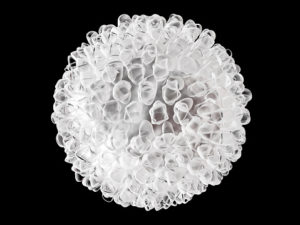Neutropenia is characterized by abnormally low counts of neutrophils and is a common condition among patients receiving chemotherapy or hematopoietic stem cell transplants. The RING study (Resolving Infection in Neutropenia with Granulocytes), sought to determine whether neutropenia patients infected with bacteria or fungi infections fared better with standard antimicrobial therapy or standard therapy in addition to daily granulocyte transfusions from donors stimulated with granulocyte colony-stimulating factor and dexamethasone. While no differences between study arms were found for microbial response, additional analyses recently published in Transfusion focus on white blood cell alloimmunization in these same patients. Serum samples were obtained from 100 patients at baseline and at 2 and 6 weeks. Antibodies specific for granulocytes as well as HLA Class I and II were examined. Seroconversion ranged from 0%-15% in the granulocyte transfusion arm as compared to 0%-5% in the control arm (p=0.36), and the presence of alloimmunization did not affect patient survival or microbial response at 42 days. In this study population with minimal immunosuppression, white blood cell alloimmunization was infrequent after granulocyte transfusion. Additional granolucyte transfusion studies may be helpful for other patient populations.
References:
- Price TH, McCullough J, Strauss RG, Ness PM, et al. WBC alloimmunization: effects on the laboratory and clinical endpoints of therapeutic granulocyte transfusions. Transfusion 2018; 58; 1280-1288.
- Price TH, Boeckh M, Harrison RW, et al. Efficacy of transfusion with granulocytes from G-CSF/dexamethasone-treated donors in neutropenic patients with infection. Blood 2015; 126; 2153-61.

